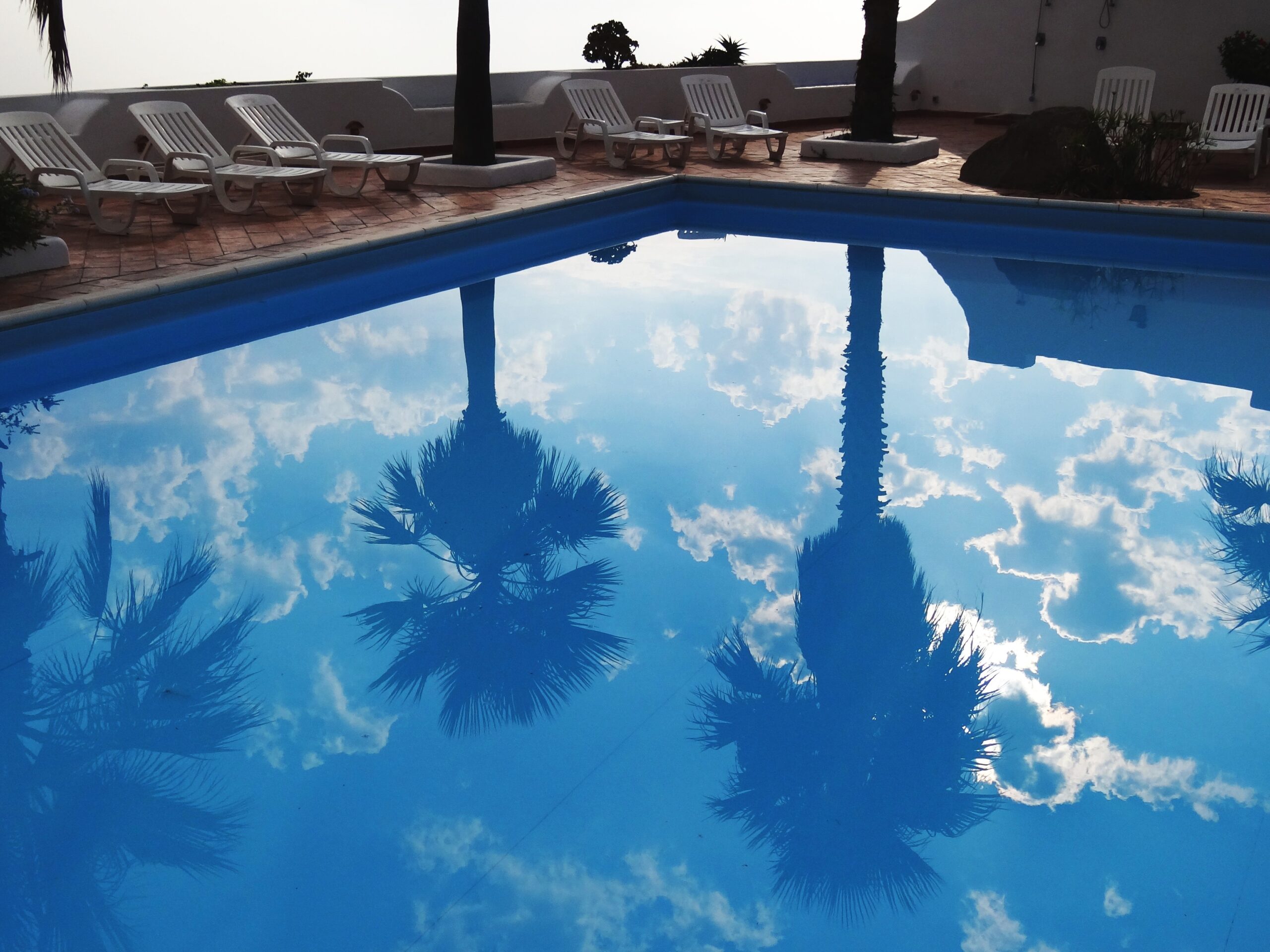
Some Pool Surfaces Save You Money, Others Don’t, Why?
What is the most attractive, easiest to live with and longest-lasting finish with the best value as well?
To gain the maximum amount of enjoyment, with the least fuss, expense, and maintenance, selecting the right finish or best upgrade, takes a little effort.
For an attractive finish, you want one that provides the color you are seeking, entices you into the pool, and stays the way it was from new.
For one that has the least hassles a finish that’s easy to keep clean (no algae attack or staining) and is not abrasive on feet or elbows.
For the best value it needs to be straightforward to install, very long-lasting, with no acid washing, no resurfacing needed and stays just how it was from the day of installation.
And for the best health aspect, you want one that requires minimal chemical input, does not react with chemicals and so does not become an issue in trying to keep the water balance stable.
Is such a finish out there?
Well In one word, YES!
So, which one is it?
Before we get to that let’s have a quick look and the pros and cons of the common finishes.
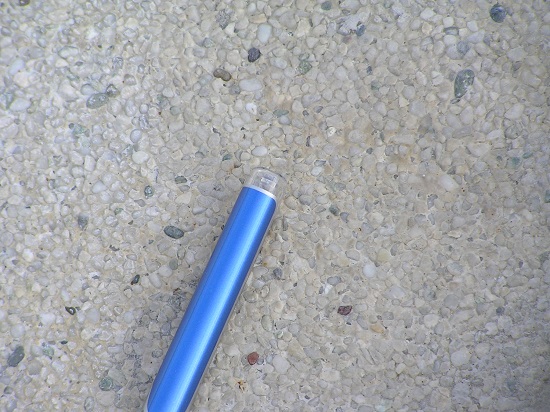
Plaster finishes: (Inc Marcite, Pebble type finishes)
- Pros:
- Very common
- Generally good value
- Attractive colors
- Nonslip
- When looked after well can last 10 – 15 years
- Can have any shape you want, though at some cost
- A concrete shell usually provides stability.
- Cons:
- It’s hand-finished so it\’s very dependent on the skill of the installer
- Can be hard – abrasive on the skin
- Is porous and allows algae to take hold
- Needs more chemicals to maintain good water health
- Stains easily and needs to be “acid washed” every 5 years on average
- Slowly is eroded through pool chemicals, acid mostly
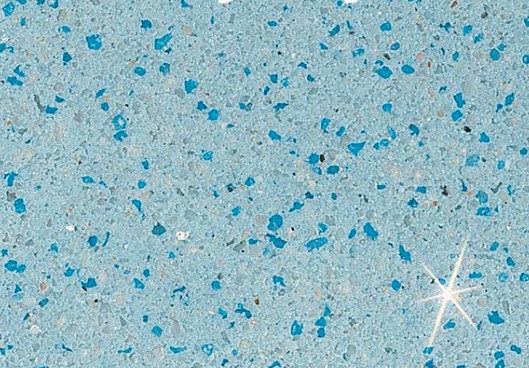
Quartz Type Finishes
- Pros:
- Very attractive finishes are available
- Durable
- Nonslip
- When looked after well can last 7 – 12 years
- Can have any shape you want, though at some cost
- A concrete shell usually provides stability.
- Cons:
- It’s hand-finished so it\’s very dependent on the skill of the installer
- Can be hard – abrasive on the skin
- Is porous and allows algae to take hold
- Needs more chemicals to maintain good water health
- Stains easily and needs to be “acid washed” every 5 years on average
- Slowly is eroded through pool chemicals, acid mostly
- Can be expensive to install and operate
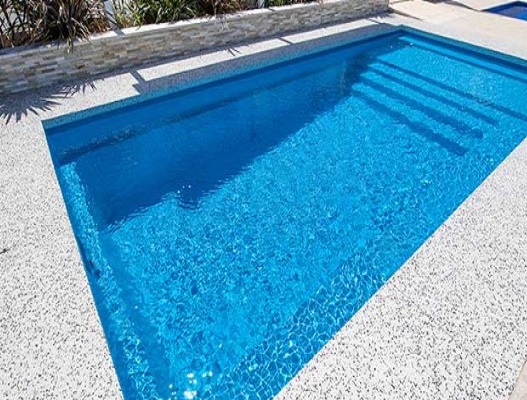
Fiberglass Pools
- Pros:
- Generally good value
- Attractive colors and finishes
- Nonslip on step treads
- Low maintenance
- When looked after well can last 20 – 25 years
- Smooth, easy-clean factory finish
- Easy and quick installation
- Cons:
- Limited pool sizes and shapes
- The surface slowly wears away and resurfacing is needed every 15 -20 years
- It May have higher installation costs on some sites
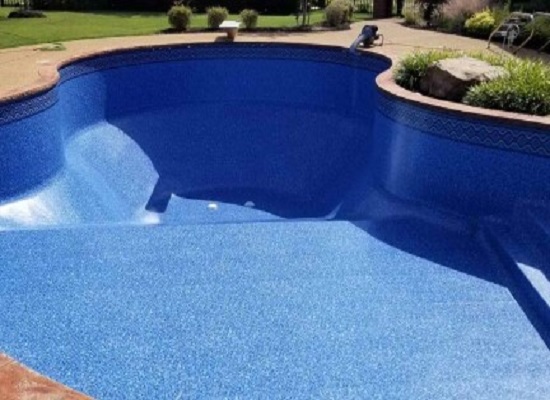
Vinyl Liner
- Pros:
- Generally good value (above ground)
- Attractive colours
- Relatively low maintenance
- When looked after well can last 10 years
- Stain-resistant
- Easy to refurbish
- Cons:
- May need replacement early due to damage
- The surface can be affected badly by poor chemistry
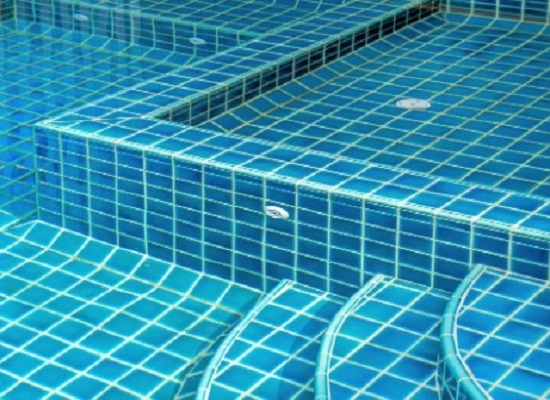
Tiled Pools
- Pros:
- Durable
- Attractive colors, patterns, and finishes
- Nonslip on step treads
- Low maintenance
- When looked after well can last 20 – 25 years
- Stain-resistant
- Cons:
- Expensive
- Lengthy install process
- Grout subject to stains and algae
- Hard to upgrade or change
- Hard to repair – replace older damaged tiles
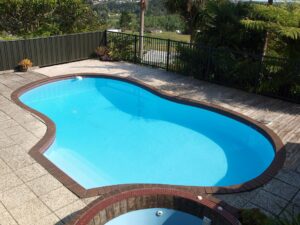
Painted type finishes: (Acrylic, Epoxy)
- Pros:
- Attractive colors available
- Easy to apply
- Ideal for both new and upgrading older pool surfaces
- Generally easy to clean and inert
- Suitable over Fiberglass, Plaster, and Quartzon type surfaces
- A concrete shell usually provides stability.
- Durability low (acrylic 1 – 3yrs) to good (epoxies (3 – 5 yrs)
- Can be DIY
- Good value for performance
- Easy to include artistic effects, murals
- Cons:
- Both products chalk with UV exposure
- Both wear away and need recoating (acrylic 2 – 3 yrs) epoxies 3– 5+ years)
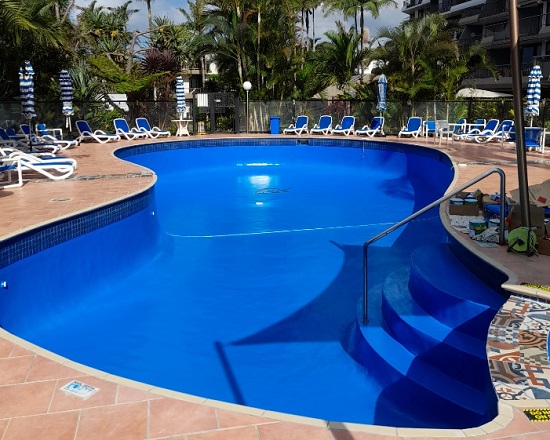
PaintNForget Fluoropolymer Coating
- Pros:
- Attractive colors available
- Ideal for both new and upgrading older pool surfaces
- Easy to clean and inert
- Easy to include artistic effects, murals
- Waterproof
- Suitable over Fiberglass, Plaster, and Quartzon type surfaces
- Durability excellent, unaffected by UV or pool chemicals
- Nonslip on steps
- Can be DIY or contractor
- Great value for performance
- Long-lasting, 10 years plus – over 30 years in marine situations
- Cons:
- None known
